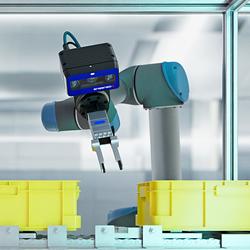Global Motion Control and Motor Market Sees Slight Decline in Q1 2019 vs. Q1 2018
“While the year-over-year numbers show a slight decline, it’s promising to see the increase from Q4 2018 to Q1 2019 and hear positive projections for the months ahead from the member companies we polled,†said A3 Vice President Dana Whalls
ANN ARBOR, MI-June 25, 2019-The global motion control and motor market saw a 0.2% decline in shipments in the first quarter of 2019 vs. the same period last year, down to $952.3 million. However, according to the Motion Control & Motor Association, part of the Association for Advancing Automation (A3), shipments were up 0.6% ($6 million) compared to the fourth quarter of 2018.
During Q1 2019, the largest categories within the overall market were motors (39% shipments), actuators and mechanical systems (18% shipments), and electronic drives (17% shipments). From Q1 2018 to Q1 2019 motor shipments were down 1.8%, actuators & mechanical systems were down 8.9%, and electronic drive shipments were flat.
From Q4 2018 to Q1 2019, motor shipments were up 0.6% to $373.6 million, actuators and mechanical systems were down 0.4% to $174.6 million, and shipments of electronic drives were up 1% to $161.1 million.
According to the latest MCMA survey of industry experts, 69% of member companies surveyed expect higher shipments and 23% expect orders to remain flat.
Learn the latest updates on motion control and motor automation at the MCMA TechCon, Oct. 7-10, 2019 in Indianapolis, Indiana.
About MCMA
Founded in 2006, the Motion Control & Motor Association (MCMA) was developed to advance the global understanding and use of motion control and related automation technologies and to help our member companies and the industry grow. We promote innovation and growth from supply through distribution by providing comprehensive education, research, communication, industry trade shows, events, and networking. Today, MCMA is serving the needs of hundreds of its member manufacturers, distributors, system integrators, manufacturers' representatives, end users, suppliers, consulting firms, researchers, and academics from across the globe. For more information, please visit www.motioncontrolonline.org
About Association for Advancing Automation (A3)
The Association for Advancing Automation is the global advocate for the benefits of automating. A3 promotes automation technologies and ideas that transform the way business is done. A3 is the umbrella group for Robotic Industries Association (RIA), AIA - Advancing Vision + Imaging, Motion Control & Motor Association (MCMA), and A3 Mexico. RIA, AIA, MCMA and A3 Mexico combined represent over 1,200 automation manufacturers, component suppliers, system integrators, end users, research groups, and consulting firms from throughout the world that drive automation forward. For more information, visit: A3, RIA, AIA, MCMA, A3 Mexico.
Featured Product

